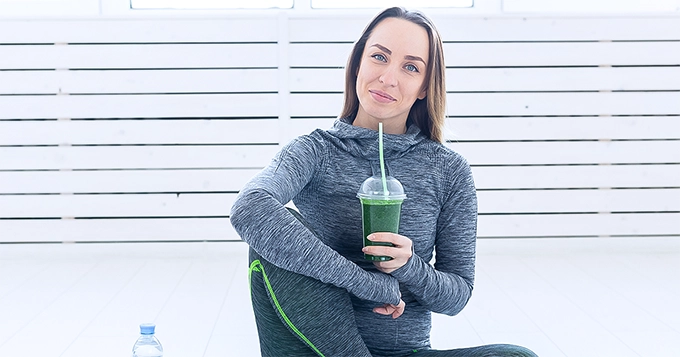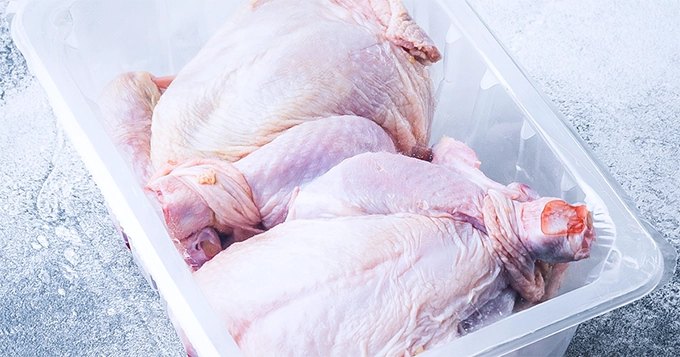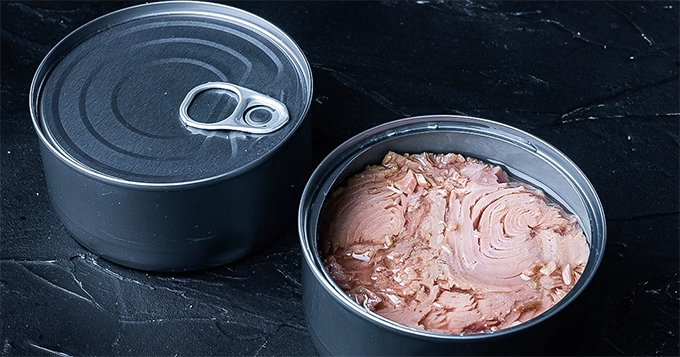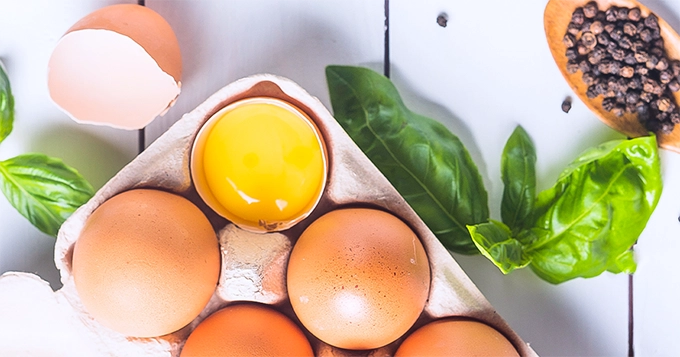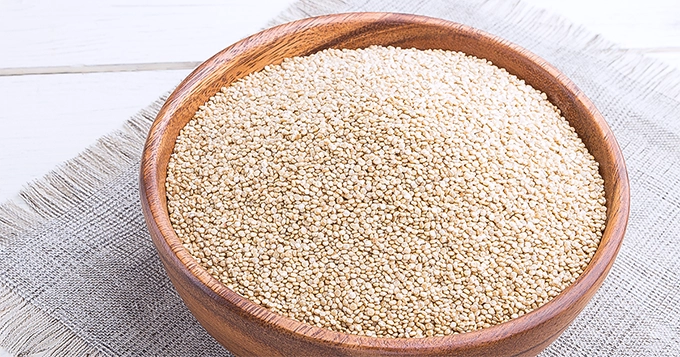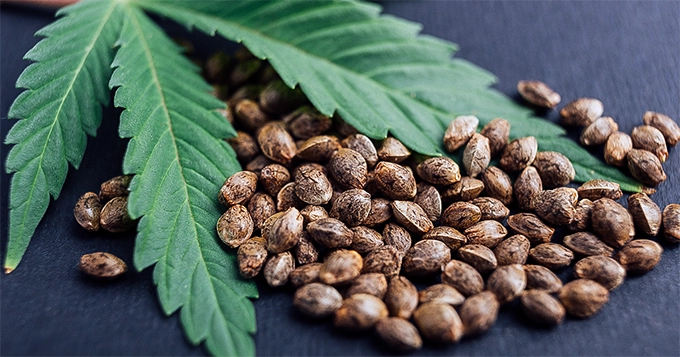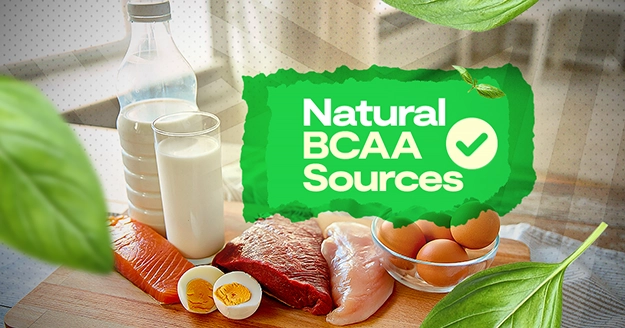What is BCAA?
The body digests the three essential amino acids valine, leucine, and isoleucine—collectively referred to as BCAAs—as a source of muscular energy. Because these three amino acids contain branches in their chemical structures, they are known as branched-chain amino acids, otherwise known as BCAA.
By taking BCAA supplements before exercise, you hope to prevent muscular exhaustion and provide your muscles with more energy reserves. Taking BCAA after a workout helps your body recover, regenerate, and rejuvenate muscles so that you experience less soreness the following day.
Some benefits of BCAAs include:
- Help in muscular gain
- Reduce muscular pain
- Lessen exercise fatigue
- Maintain muscular mass
- Increase your appetite
- Ease symptoms of tardive dyskinesia
- Reduce the hepatic encephalopathy symptoms caused by cirrhosis
- Prevent liver cancer in those who have cirrhosis.
- Treat certain brain disorders
- Enhance the mental function of those with phenylketonuria
BCAAs may be taken in supplement form, intravenously, or through foods.
Food Sources of BCAA
You’re probably here because you searched for “source BCAA,” well, you’re in luck! Continue reading to find out which foods are a good source of BCAA.
Poultry
Poultry is among the best source of BCAA. Both chicken and turkey are fantastic sources of lean protein for muscle repair, and both include all three BCAAs. Chicken breast (100 g) contains around 5.5 grams of BCAA. Turkey breast has around 4.6 grams of BCAAs per 100 grams. Both chicken and turkey are versatile meats that taste great in a wide variety of dishes.
Salmon
Aside from containing BCAAs, salmon is also a good source of docosahexaenoic acid (DHA) and eicosapentaenoic acid (EPA), two forms of vital omega-3 fatty acids. These healthy fats have been associated with a number of advantages, including improving heart and brain health, relieving muscle pain, and enhancing oxygen intake. 100 grams of salmon has around 4 grams of BCAA.
Tuna
The omega-3 and protein-rich tuna is another fatty fish that is high in BCAAs. Stock up on canned tuna for a cheap post-run protein option if preparing tuna intimidates you. 5 ounces of canned tuna gives you around 5.2 grams of BCAAs.
Milk
A glass of milk after a run is helpful for recovery since it contains all of the BCAAs and has a 3:1 carb-to-protein ratio. Milk also has nine vital amino acids, including calcium and vitamin D, which protect the bones. Milk, 1% (237 milliliters), has around 2.2 grams of BCAAs.
Eggs
Eggs are a quick and simple post-workout recovery option because they have all the BCAAs and 6 grams of protein in one large egg. 2 eggs can give you around 2.6 grams of BCAAs.
They include lutein and zeaxanthin, two antioxidants renowned for their functions in maintaining eye health, and they are one of the few sources of Vitamin D. Prepare a quick frittata or scrambled egg after your run to sate your hunger.
Tofu
Can you source BCAA in other non-animal foods? Yes.
Tofu is a great source of vegan BCAA sources. Extra-firm tofu contains 1.797 grams of BCAAs for every 100 grams.
It contains nine of the essential amino acids, making tofu one of the few “complete” meatless proteins. Non-dairy calcium can also be found in tofu. Try to include tofu in your preferred stir-fry recipe because it readily absorbs the taste of almost any marinade.
Tempeh
Tempeh can provide all nine amino acids, including BCAAs, and it can also be included in various recipes. Tempeh contains 3.23 grams of BCAAs for every 100 grams.
Quinoa
Quinoa is one of just two other plant-based proteins containing all nine amino acids and tofu. It’s a grain that may be used in soups, salads, and porridge, and includes 8 grams of protein in a cup of cooked grain. Quinoa contains 0.603 grams of BCAAs per every 100 grams.
Red Lentils
The three BCAAs, as well as 22 grams of protein and 10 grams of fiber, are all present in red lentils, which are softer and thinner than brown ones. Lentils contain 1.492 grams of BCAAs for every 100 grams. Red lentils take around 20 minutes to simmer into a creamy consistency, making them the ideal stew base.
Hemp Seeds
This soft seed includes iron, zinc, magnesium, and omega-3 fatty acids. 10 grams of plant-based protein are contained in three tablespoons. Hemp seed contains 5.226 grams of BCAAs for every 100 grams.
Avocado toast, salads, and smoothie bowls all benefit from hemp seeds’ tasty crunch.
Peanuts
Since they are a legume and not a nut, peanuts are a good source of all the BCAAs (containing 3.661 grams of BCAAs for every 100 grams). Peanuts come in various forms, including whole, peanut butter, and peanut powder. Check the ingredients to be sure there are only peanuts and salt in whatever variety of peanuts you purchase.
Dosage
Food can provide enough BCAA to support moderate physical exercise.
The intake of branched-chain amino acids for advanced athletes who aim for a flawless athletic physique is 0.5 to 1 g per 10 kg of body weight. Therefore, 45 to 90 g of BCAA should be consumed by a 90 kg person.
On the other hand, people who do not engage in intense training typically take between 10 and 20 g of supplements daily. The supplement’s quantity should be proportional to the level of exercise; the more BCAA our bodies require, the harder the workout.
